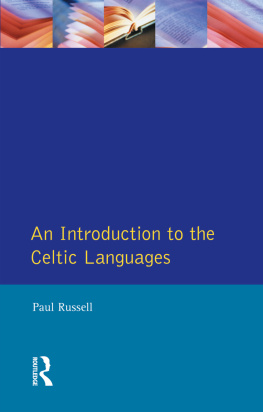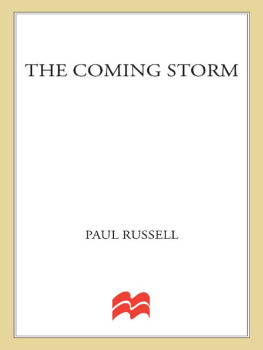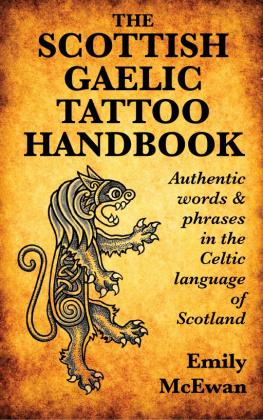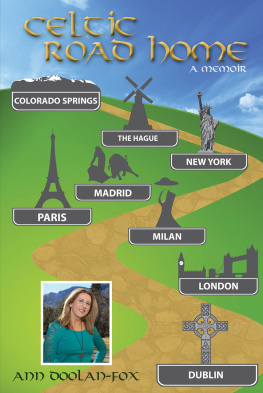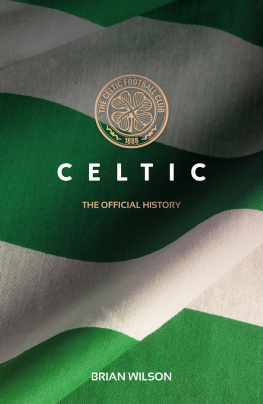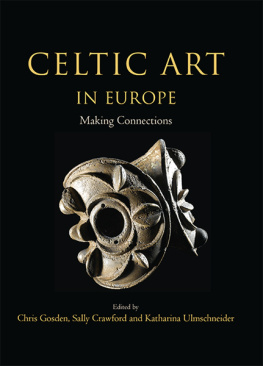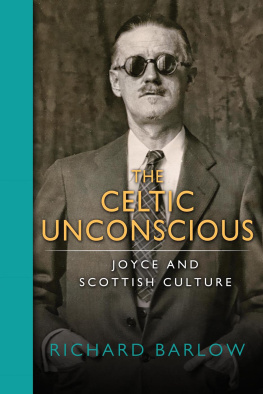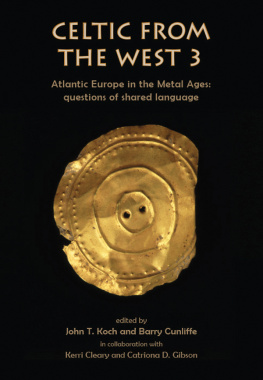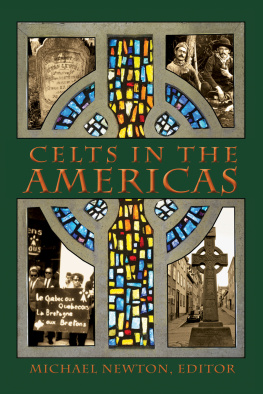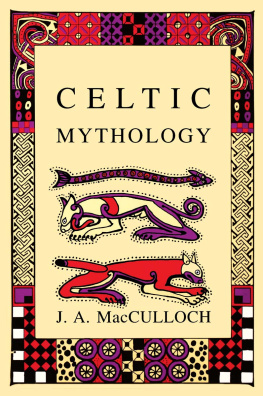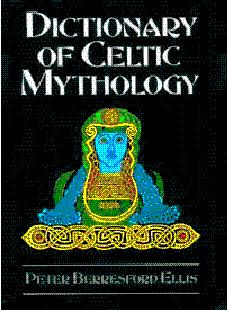LONGMAN LINGUISTICS LIBRARY
AN INTRODUCTION TO THE CELTIC LANGUAGES
LONGMAN LINGUISTICS LIBRARY
General editors:
R. H. Robins, University of London
Martin Harris, University of Manchster
Geoffrey Horrocks, University of Cambridge
For a complete list of books in the series see pages v and vi
An Introduction to
the Celtic Languages
Paul Russell
First published 1995 by Longman Group Limited
Published 2013 by Routledge
2 Park Square, Milton Park, Abingdon, Oxon OX14 4RN
711 Third Avenue, New York, NY 10017, USA
Routledge is an imprint of the Taylor & Francis Group, an informa business
Copyright 1995, Taylor & Francis.
All rights reserved. No part of this book may be reprinted or reproduced or utilised in any form or by any electronic, mechanical, or other means, now known or hereafter invented, including photocopying and recording, or in any information storage or retrieval system, without permission in writing from the publishers.
Notices
Knowledge and best practice in this field are constantly changing. As new research and experience broaden our understanding, changes in research methods, professional practices, or medical treatment may become necessary.
Practitioners and researchers must always rely on their own experience and knowledge in evaluating and using any information, methods, compounds, or experiments described herein. In using such information or methods they should be mindful of their own safety and the safety of others, including parties for whom they have a professional responsibility.
To the fullest extent of the law, neither the Publisher nor the authors, contributors, or editors, assume any liability for any injury and/or damage to persons or property as a matter of products liability, negligence or otherwise, or from any use or operation of any methods, products, instructions, or ideas contained in the material herein.
ISBN 13: 978-0-582-10081-7 (pbk)
British Library Cataloguing-in-Publication Data
A catalogue record for this book is
available fromthe British Library
Library of Congress Cataloging-in-Publication Data
Russell, Paul, 1956 Feb. 23
An introduction to the Celtic languages / Paul Russell.
p. cm. (Longman linguistics library)
Includes bibliographical references and index.
ISBN 0-582-10082-8 (CSD). ISBN 0-582-10081-X (PPR)
1. Celtic languages. I. Title. II. Series.
PB 1014.R87 1995
491.6dc20 94-44203
CIP
LONGMAN LINGUISTICS LIBRARY
General editors:
R. H. Robins, University of London
Martin Harris, University of Manchester
Geoffrey Horrocks, University of Cambridge
A Short History of Linguistics
Third Edition
R. H. ROBINS
Text and Context
Explorations in the Semantics and Pragmtics of Discourse
TEUN A. VAN DIJK
Introduction to Text Linguistics
ROBERT DE BEAUGRANDE AND WOLFGANG ULRICH DRESSLER
Psycholinguistics
Language, Mind , and World
DANNY D. STEINBERG
Principles of Pragmatics
GEOFFREY LEECH
Generative Grammar
GEOFFREY HORROCKS
The English Verb
Second Edition
F. R. PALMER
A History of American English
J. L. DILLARD
English Historical Syntax
Verbal Constructions
DAVID DENISON
Pidgin and Creole Languages
SUZANNE ROMAINE
A History of English Phonology
CHARLES JONES
Generative and Non-linear Phonology
JACQUES DURAND
Modality and the English Modals
Second Edition
F. R. PALMER
Semiotics and Linguistics
YISHAI TOBIN
Multilingualism in the British Isles I: The Older Mother Tongues and Europe
EDITED BY SAFDER ALLADINA AND VIV EDWARDS
Multilingualism in the British Isles II: Africa, The Middle East and Asia
EDITED BY SAFDER ALLADINA AND VIV EDWARDS
Dialects of English
Studies in Grammatical Variation
EDITED BY PETER TRUDGILL AND J. K. CHAMBERS
Introduction to Bilingualism
CHARLOTTE HOFFMANN
Verb and Noun Number in English:
A Functional Explanation
WALLIS REID
English in Africa
JOSEF SCHMIED
Linguistic Theory
The Discourse of Fundamental Works
ROBERT DE BEAUGRANDE
General Linguistics
An Introductory Survey
Fourth Edition
R. H. ROBINS
Historical Linguistics
Problems and Perspectives
EDITED BY C. JONES
A History of Linguistics Vol. I
The Eastern Traditions of Linguistics
EDITED BY GIULIO LEPSCHY
A History of Linguistics Vol. II
Classical and Medieval Linguistics
EDITED BY GIULIO LEPSCHY
Aspect in the English Verb
Process and Result in Language
YISHAI TOBIN
The Meaning of Syntax
A Study in the Adjectives of English
CONNOR FERRIS
Latin American Spanish
JOHN M. LIPSKI'
A Linguistic History of Italian
MARTIN MAIDEN
Modern Arabic
CLIVE HOLES
Frontiers of Phonology: Atoms, Structures, Derivations
EDITED BY JACQUES DURAND AND FRANCIS KATAMBA
An Introduction to the Celtic Languages
PAUL RUSSELL
To Ben
Contents
|
|
|
|
Lenition and mutations: phonetics, phonology
and morphology |
|
|
Verbal nouns and infinitives: the historical
background |
The original invitation to contribute this volume to the Longman Linguistics Library series came from Elizabeth Mann, and I am grateful to her and the editors of the series for their support and encouragement. There would have been no chance of completing the volume on time had not the Warden and Council of Radley College been kind enough to grant me a term's sabbatical during the final stages. I am grateful also to my colleagues for shouldering the extra work my absence entailed. During that term Jesus College, Oxford, provided a congenial place to work, and Ellis Evans displayed characteristic kindness in discussing aspects of my work. John Penney read a final draft of the whole work, and by always asking the awkward questions and raising the telling objections showed me that the draft was less final than I had thought. I have also benefited from discussing aspects of the work with Pierre-Yves Lambert and Peter Smith. As ever, Thomas Charles-Edwards has kindly acted as a sounding-board for ideas, and has supplied clarity of thought and good sense in large measures; he too read a final draft and made many valuable suggestions and corrections. It is a better volume for all their contributions.
My wife, Felicity, has as usual borne the brant of my labours, particularly in giving me time and space to complete the work; she has provided constant support and encouragement in every way. Ben, my son, has taken a keen and detailed interest in all aspects of the production of 'his' book; it is dedicated to him with love.
PAUL RUSSELL
Radley College
A adjective
acc. accusative
AgN agent noun
AN abstract noun
B Breton
Cards Cardiganshire
CF Cois Fhairrge
Celtib Celtiberian
Co Cornish
Conn Connacht
dat. dative
Det. Determinative
Don Donegal
Eng English
f. feminine
Gaul Gaulish
GD Gweedore
gen. genitive
Goth Gothic
Gk Greek
Hany laryngeal (see Chapter 2, n. 16)
Ir Irish
IE Indo-European
Lat Latin

